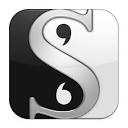This post by Kathleen Hale originally appeared on The Guardian on 10/17/14. Note that it contains strong language.
When a bad review of her first novel appeared online, Kathleen Hale was warned not to respond. But she soon found herself wading in
In the months before my first novel came out, I was a charmless lunatic – the type that other lunatics cross the street to avoid. I fidgeted and talked to myself, rewriting passages of a book that had already gone to print. I remember when my editor handed me the final copy: I held the book in my hands for a millisecond before grabbing a pen and scribbling edits in the margins.
“No,” she said firmly, taking the pen away. “Kathleen, you understand we can’t make any more changes, right?”
“I was just kidding,” I lied. Eventually she had to physically prise the book from my hands.
A lot of authors call this “the post-partum stage”, as if the book is a baby they struggle to feel happy about. But for me, it felt more like one of my body parts was about to be showcased.
“Are you excited about your novel?” my mom asked, repeatedly, often in singsong.
“I’m scared,” I said. Anxious and inexperienced, I began checking goodreads.com, a social reviewing site owned by Amazon. My publisher HarperTeen had sent advance copies of my book to bloggers and I wanted to see what they thought. Other authors warned me not to do this, but I didn’t listen. Soon, my daily visits tallied somewhere between “slightly-more-than-is-attractive-to-admit-here” and “infinity”.
For the most part, I found Goodreaders were awarding my novel one star or five stars, with nothing in between. “Well, it’s a weird book,” I reminded myself. “It’s about a girl with PTSD teaming up with a veteran to fight crime.” Mostly I was relieved they weren’t all one-star reviews.
One day, while deleting and rewriting the same tweet over and over (my editors had urged me to build a “web presence”), a tiny avatar popped up on my screen. She was young, tanned and attractive, with dark hair and a bright smile. Her Twitter profile said she was a book blogger who tweeted nonstop between 6pm and midnight, usually about the TV show Gossip Girl. According to her blogger profile, she was a 10th-grade teacher, wife and mother of two. Her name was Blythe Harris. She had tweeted me saying she had some ideas for my next book.
“Cool, Blythe, thanks!” I replied. In an attempt to connect with readers, I’d been asking Twitter for ideas – “The weirdest thing you can think of!” – promising to try to incorporate them in the sequel.
Curious to see if Blythe had read my book, I clicked from her Twitter through her blog and her Goodreads page. She had given it one star. “Meh,” I thought. I scrolled down her review.
“Fuck this,” it said. “I think this book is awfully written and offensive; its execution in regards to all aspects is horrible and honestly, nonexistent.”
Read the full, lengthy post on The Guardian.
 Warning: Hacks for Hacks tips may have harmful side effects on your writing career, and should not be used by minors, adults, writers, poets, scribes, scriveners, journalists, or anybody.
Warning: Hacks for Hacks tips may have harmful side effects on your writing career, and should not be used by minors, adults, writers, poets, scribes, scriveners, journalists, or anybody.
 By
By  A few months ago, I started a new pen-name and have kept it secret in order to avoid ‘pollution’ of the also-boughts. But it has been SO hard because I have basically started from scratch – with no email list, no street team, no reviews, no platform, no social media.
A few months ago, I started a new pen-name and have kept it secret in order to avoid ‘pollution’ of the also-boughts. But it has been SO hard because I have basically started from scratch – with no email list, no street team, no reviews, no platform, no social media.  Over the years I’ve written quite a bit about
Over the years I’ve written quite a bit about  Posted on
Posted on  I’ve long been a
I’ve long been a